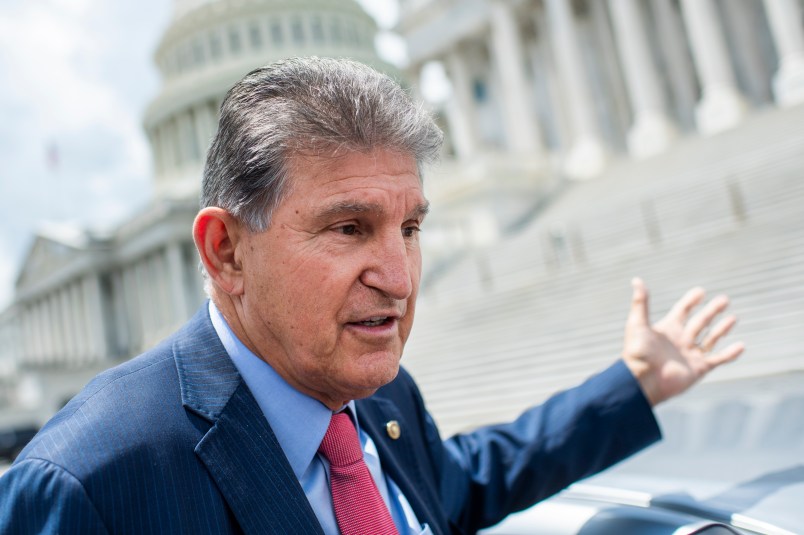Sen. Joe Manchin (D-WV) on Sunday disputed criticism from fellow Democrats who accuse the centrist senator of drawing more “red lines” with his caucus compared to Republicans on legislative proposals.
Appearing on ABC News, Manchin was pressed on the blowback he gets from fellow Democrats who argue that the senator constantly imposes limits on the caucus with his commitment to preserving the filibuster in a 50-50 Senate. Manchin was asked about why he won’t threaten to nix the filibuster as a way to pressure Republicans to come around to legislative proposals he supports.
After saying that he doesn’t “wish this on anybody,” Manchin maintained that he has not voted any differently in the past decade.
“I’ve always been very moderate, very centrist. I tell people, I’m fiscally responsible and socially compassionate. And I want to find that middle. And I think there’s always a middle to find,” Manchin said.
Manchin dug his heels further on his voting behavior in the Senate.
“It’s the way I’ve basically been in public life, and I’m not changing. I’m sorry that this 50/50 worked out and people were unhappy with it, but it is what it is. And if they think that I’m going to change and be something that I’m not, I won’t. And I’ve been very clear,” Manchin said.
Manchin doubled down on his hopes on passing legislation through bipartisanship, saying that he is “willing to meet everybody halfway.”
Manchin’s remarks come on the heels of President Biden issuing a statement clarifying that it was not his intent to “create the impression that I was issuing a veto threat on the very plan I had just agreed to” after days of Republican senators complaining about Biden’s remarks declaring that he would not sign the bipartisan infrastructure bill unless he could do so in “tandem” with a reconciliation bill.
Earlier this month, Manchin sent Democrats into a despair spiral when he came out against the “For the People Act,” also known as S.1. Manchin, however, joined the the rest of the Democratic caucus to proceed to debate on S.1. But ultimately, Senate Republicans deployed the filibuster to block the debate on Democrats’ major voting rights bill.



